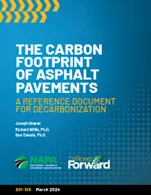A ground-breaking project to ensure the UK is well positioned for the commercial roll-out of hydrogen fuel cell electric vehicles was announced yesterday by Mark Prisk, the UK government’s business minister. The new programme – UKH2Mobility – will evaluate the potential for hydrogen as a fuel for Ultra Low Carbon Vehicles in the UK before developing an action plan for an anticipated roll-out to consumers in 2014/15.
The programme aims to:
- Analyse in detail the specific UK case for the introduction of hydrogen fuel cell electric vehicles as one of a number of solutions to decarbonise road transport and quantify the potential emissions benefits;
- Review the investments required to commercialise the technology, including refuelling infrastructure; and
- Identify what is required to make the UK a leading global player in hydrogen fuel cell electric vehicle manufacturing thereby paving the way for economic opportunities to the UK, through the creation of new jobs and boosting of local economies.
UKH2Mobility brings together the government and industrial participants from the utility, gas, infrastructure and global car manufacturing sectors. All of the participants have signed a Memorandum of Understanding to agree to share their knowledge and expertise.
“Hydrogen fuel cell electric vehicles are increasingly being recognised as one of the viable options as we move to a lower carbon motoring future,” Mark Prisk said at the launch of UKH2Mobility. “They are highly efficient, can be fuelled in minutes, travel an equivalent range to a conventional combustion engine, and have zero tail-pipe emissions. This country has a number of world-class companies that are developing exciting technologies in both the hydrogen energy and automotive value chains and it is vitally important that we identify what is required to make these cars a realistic proposition for UK consumers.”
UKH2Mobility, which is comprised of 13 industry partners together with three UK government departments, will deliver its evaluation of the potential of hydrogen as a transport fuel by the end of 2012. If the results are positive, an action plan will be developed to work through the steps needed to get the UK ready to be one of the first markets for the global commercial roll out of hydrogen fuel cell electric vehicles.








